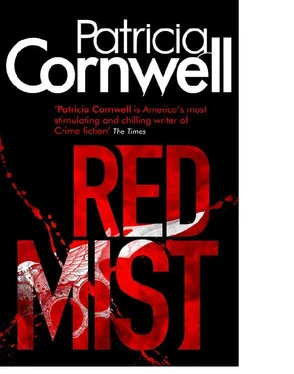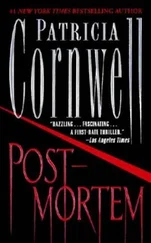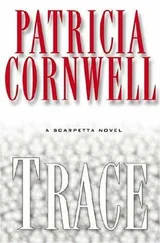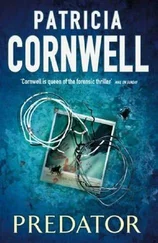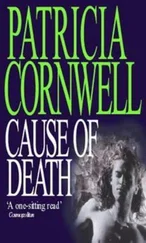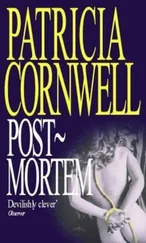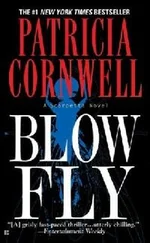Even if there weren’t old murders connected to recent ones that seem to share the common denominator of Savannah, I wouldn’t leave right now. I extended my hotel reservation and booked a room for Lucy, who took off in her helicopter with Benton at dawn. I said I needed their help. I told them I usually don’t ask, but I want them here. Marino’s white cargo van turns into the hotel’s brick driveway, still loud but at least not bucking and shaking, and I get up from the bench. I walk toward the cabdriver with the scruffy beard and smile at him as I drop my Starbucks cup into the trash.
“Good morning,” I greet him, as he continues to stare.
“You mind me asking who you’re with?” He eyes me up and down, leaning against his blue taxicab parked beneath the same palm tree where Marino left his crippled van some seven hours earlier.
“Military medical research.” I give the taxi driver the same meaningless answer I’ve offered other people this morning who wondered aloud why I’m wearing black cargo pants, a long-sleeved black tactical shirt with the CFC shield embroidered in gold on it, and boots.
The go-bag I found in my room when I walked in at close to two a.m. had all of the essentials I might need on the road working a case but nothing suited for the civilian world, certainly not one located in the subtropics. I recognize Marino’s handiwork. In fact, I have no doubt he packed the go-bag himself, removing items from my office closet and bathroom and also my locker in the morgue changing room. As I’ve continued reconstructing these past several months and especially the two weeks since he’s been gone I recall being puzzled when certain items seemed to be missing. I thought I had more uniform shirts. I was sure I had more cargo pants. I could have sworn I had two pairs of boots, not just one. The contents of the go-bag suggest that from Marino’s point of view, I’m going to spend my time down here in labs or a medical examiner’s office, or more to the point, with him.
Had Bryce packed for me, and that’s the usual routine when an emergency rushes me out of town or I’m stranded somewhere, he would have included a suit bag with blazers, blouses, and slacks generously padded and wrapped with tissue paper so nothing gets wrinkled. He would have picked out shoes, socks, workout clothes, and toiletries, his choices made with far more thoughtfulness and flair than if I’d packed myself, and most likely he would have stopped by my house. Bryce doesn’t hesitate to help himself to anything he anticipates I might need, including lingerie, which is of no personal interest to him beyond his occasional comments about various labels and fabrics, and which detergents and dryer sheets he prefers. But he would not have sent me off to Georgia in the summer with three sets of cold-weather field clothes, three pairs of men’s white socks, a flak jacket, boots, one deodorant, and an insect repellent.
“I didn’t know if you ate yet,” Marino says, as I open the van’s door, and right away I notice the interior is much cleaner than it was when I was in it last. I smell citrus-scented air freshener and butter and deep-fried steak and eggs. “They got a Bojangles’ a couple miles from here near Hunter Army Airfield, which gave me an excuse to do a test run. The van’s good as new.”
“With the minor exception of air-conditioning.” I buckle up and notice the bulging bag on the floor between our seats as I roll the window down all the way.
“Would need to get a new compressor for that, but the hell with it. I mean, you wouldn’t believe the deal I got on this thing, and you sort of get used to not having air. Like the old days. When I was growing up, a lot of cars didn’t have it.”
“Or shoulder harnesses or air bags or antilock brakes or navigational systems,” I reply.
“I got you a plain egg biscuit, but there’s a few steak, egg, and cheese ones, too, if you’re hungry,” he says. “And there’s water in a cooler.” He pokes a thumb toward the backseat. “No olive oil at Bojangles’, so you just have to make do. I know how you feel about butter.”
“I love butter, which is why I stay away from it.”
“Jesus. I don’t know what the hell it is about craving fat. But I just go with it now. I’m learning not to fight some things. If you don’t fight them, they don’t fight you back.”
“Butter fights me back when I try to button my pants. You must have stayed up all night. When did you find time to get this thing fixed and give it a bath?” I ask.
“Like I said, I found a mechanic, got his home number off the Internet. He met me at his shop at five this morning. We swapped out the alternator, balanced the tires, cleaned out the wheel wells, tightened the plug wires, and I replaced the wiper blades while we were at it, and cleaned it up a little,” he says, as we drive along West Bay, past restaurants and shops of stucco, brick, and granite, the street lined with live oaks, magnolias, and crepe myrtles.
Marino is dressed for the field, but he was sensible in what he selected for himself, the CFC summer uniform of khaki cargo pants and beige polo shirt in a lightweight cotton blend, and he wears tactical nylon mesh and suede trainers instead of boots. A baseball cap protects the top of his bald head and the tip of his sunburned nose, and he has on dark glasses and sunblock that is watery white in the deep creases of his sweaty neck.
“I appreciate your thinking to pack my field clothes,” I say to him. “I’m wondering when you did that?”
“Before I left.”
“That much I deduced on my own.”
“I should have brought you the khakis. You must be hot as hell. I don’t know what I was thinking.”
“Probably that you would take what you could find when you rummaged, and it’s been a bit too chilly in Massachusetts for warm-weather uniforms, since we’ve had an unusually cold spring. My khakis are in a closet at my house. If you had asked Bryce …”
“Yeah, I know. But I didn’t want him involved. The more involved he gets, the harder it is for him to keep his mouth shut, and he makes such a big thing out of whatever it is. He would have turned packing into a fashion show and sent me down here with a steamer trunk.”
“You packed for me before you left,” I repeat. “And when might that have been, exactly?”
“I pulled a few things together the last time I was in the office. I don’t know, the fourteenth or fifteenth, not that I was positive what would happen when I got down here.”
He turns onto US-17, heading south, the air blowing through our open windows as hot as an oven.
“I think you were absolutely positive what would happen,” I correct him. “Why don’t we just come clean about it?”
I open the glove box for extra napkins and spread them in my lap before retrieving our breakfast from the bag between our seats.
“It would be helpful if you’d admit that when you decided to take a last-minute vacation, you knew you were coming down here to assist Jaime,” I say to him. “You also knew I soon would follow without the benefit of the real reason why and would arrive with little more than the clothes on my back.”
“I’ve tried to make you understand why you couldn’t know in advance.”
“Yes, you’ve tried, and I’m sure you’re convinced of your reasoning even if I’m not. In fact, I shouldn’t call it your reasoning. It’s Jaime’s reasoning.”
“I don’t know why you don’t care if the FBI’s spying on you.”
“I don’t believe it. And if they are, they must be bored. Now, which one of these am I opening for you?” I examine warm biscuits in yellow wrappers slick with butter.
“They’re all the same except yours.”
“Okay, I think I can figure out mine, since it’s half the weight of the others.” I open more napkins and drape them over Marino’s thigh. “I would like a little clarity. And not about the FBI but about you.”
Читать дальше
